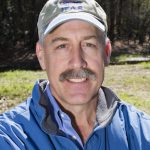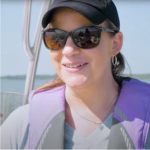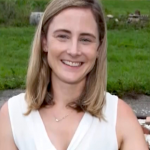We could not survive without oceans. They cover a majority of our planet. Oceans provide oxygen – a lot of it – so that all living things can breathe. Oceans are home to about one million species of living things, from large whales to small zooplankton. June 8th, we celebrate United Nations World Oceans Day. Research that the UF/IFAS soil and water sciences department conducts involves several aspects of ocean life.

Dr. Mark Clark, associate professor of wetland ecology, works with coastal communities to building living shorelines. One example is Joe Rains Beach in Cedar Key, Fla. Another of Clark’s projects is reef prisms to promote oyster reefs. The prisms are made of a jute fiber erosion control mat and rapid-setting concrete. After the jute dries in the shape of a prism, they are filled with shells and submerged in the water.

Dr. Laura Reynolds, assistant professor of coastal ecology, conducts research on nearshore marine ecosystems among other things. This includes seagrass meadows, which are important to fish for habitat, other marine species for food, and play a part in improving water quality. Reynolds is also part of the team that launched a water monitoring program for the Nature Coast Aquatic Preserve this year.

Dr. Ashley Smyth, assistant professor of biogeochemistry, works out of her lab at the UF/IFAS Tropical Research and Education Center in Homestead, Fla. Field observations and lab experiments help her better understand how environmental change and disturbance influence the fate and transport of nutrients in coastal and marine ecosystems. This work involves studying oysters’ abilities to filter water and improve water quality.
These are just some of the researchers who focus on keeping oceans healthy for life and livelihoods. You can learn more about our research here. Information on the UN World Oceans Day is here.
 0
0
